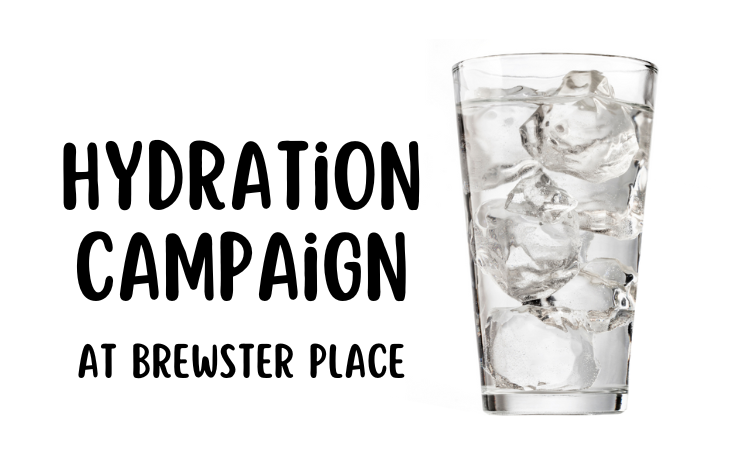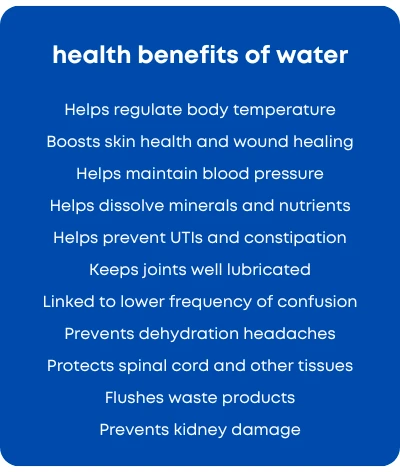
We are already in the heat of summer and even though you’ve heard it many times before, we are going to remind you again to stay hydrated by drinking lots of water.
According to the Cleveland Clinic, “older adults are at a greater risk for dehydration because of how body composition changes with age. Those in the 65-and-older crowd simply have less water in their bodies than younger adults or children. Decreased kidney function also can affect fluid levels.”


In addition, the reduction in thirst that comes with age can keep that already low supply from being replenished. “By the time an older adult feels thirsty, that’s already an indication of early dehydration,” says Anne Vanderbilt, CNS, of the Center for Geriatric Medicine at Cleveland Clinic.
Water is necessary for nearly every bodily function, from lubricating joints to regulating body temperature and pumping blood to your muscles. Not getting enough of it can have serious health consequences. That’s why dehydration is a common cause of hospitalization among those 65 and over.
According to Vanderbilt, “symptoms of dehydration in older adults often go unrecognized. Symptoms can be easily attributed to other medical conditions, medications or natural effects of aging.”




